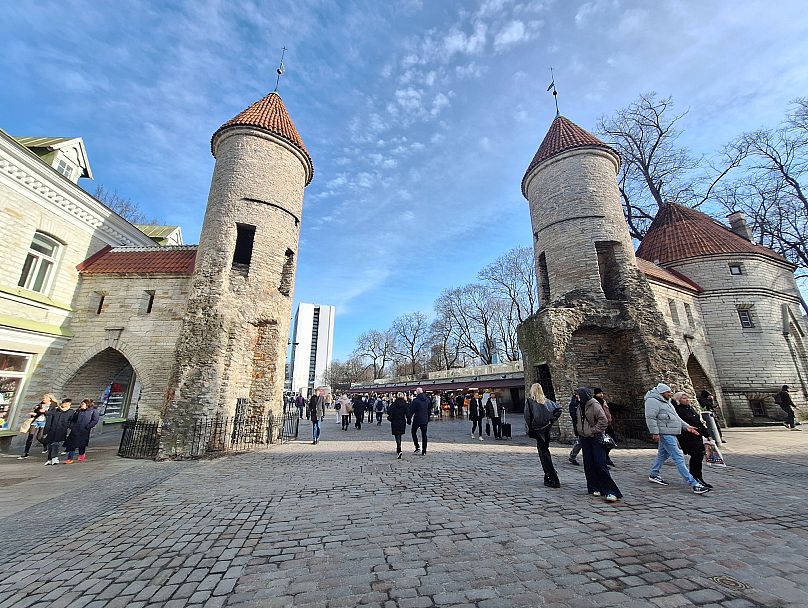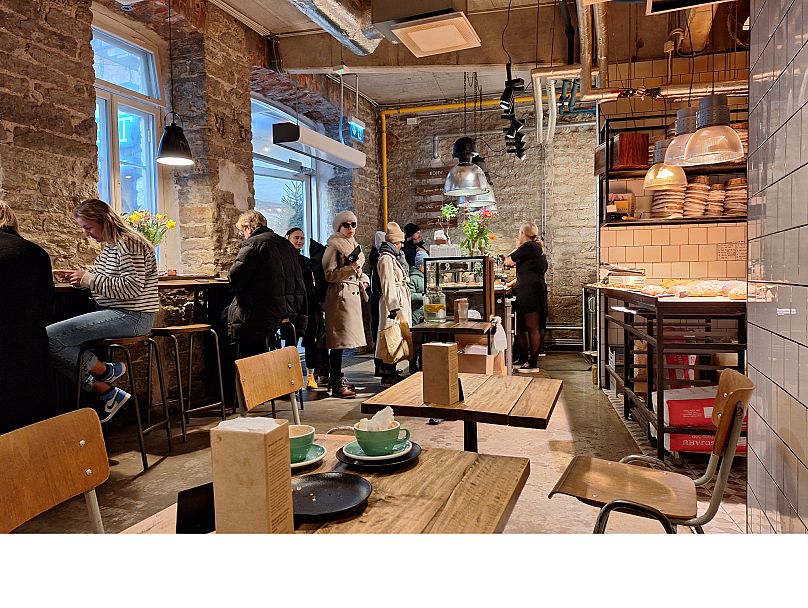Is your future vacation going to be organized by artificial intelligence (AI)? An increasing number of individuals are opting for AI-powered tools such as ChatGPT, Vacay, and GuideGeek to streamline the process of planning their upcoming journey and reduce both time and expenses involved in making travel arrangements.
AI travel planners can be swift, user-friendly, and efficient, typically producing schedules within moments. You have the flexibility to personalize these plans extensively based on the information you input into the system.
Omio’s The 2024 NowNext travel report indicated that 44 percent of travelers from Europe and the U.S. stated they would utilize AI for booking and planning their trips this year, marking an increase from 27 percent in the previous year.
Based on the survey of Generation Z and millennials conducted by American Express Some of the most beneficial travel functionalities offered by generative AI included budgeting and expense tracking, activity suggestions, customized itinerary planning, and translation assistance.
Considering all these factors, my increasing curiosity overcame me. I opted to allow an AI to organize our early March getaway to Tallinn, Estonia with my spouse.
AI can make your travel planning incredibly swift.
Due to ChatGPT's immense popularity, I utilized it for most of my travel planning. Nevertheless, I decided to test Vacay and GuideGeek as well, so I could contrast their suggestions with those from ChatGPT.
Since we had reserved the hotel, I requested the apps to arrange a three-day, two-night affordable getaway for us. Each platform proposed quite comparable schedules, differing slightly in terms of dining options, attractions, and timings. The entire process took mere moments, saving us from what would have otherwise been an exhausting, bewildering, and inconsistent few weeks of planning.
The iteration of ChatGPT I used was the most thorough and captivating for me. It encompassed well-known sites like Tallinn’s Old Town, the Alexander Nevsky Cathedral, Kiek in de Kök and the Bastion Tunnels Museum, Kadriorg Park and Palace, the Baltic Station Market, and additional locations.
While visiting Tallinn, we implemented numerous suggestions from various sources. Particularly noteworthy was my enjoyment of Kiek in de Kök, an intriguing defensive tower that forms part of a comprehensive museum site. Additionally, Kadriorg Park offered us the perfect opportunity to take advantage of the fresh late February/early March climate. The Balti Jaam market provided excellent culinary choices along with a wide array of historically significant and eccentric artisan goods.
I enjoyed how most of the tools generally grasped the main idea. Tallinn , recommending attractions and activities that best represent the city.
Estonia’s oldest café, Café Maiasmokk, proved to be a paradise for desserts accompanied by lovely décor. Another well-known franchise, Café Reval, offered an extensive menu along with a contemporary, chic atmosphere ideal for savoring a bowl of matcha.
Travel tools powered by AI can sometimes be out of date and prone to glitches.
One of the major problems we encountered during this journey was food Although I consume most foods, I am not fond of beef or other types of red meat; however, my husband abstains from both fish and red meat altogether.
We both aren’t particularly keen on pancakes, despite being enthusiastic about food. Our limited exploration tendencies made things challenging since many of the restaurant suggestions from ChatGPT initially focused mainly on classic Estonian dishes like various types of pancakes and elk meat. The same pattern emerged with Vacay and GuideGeek’s recommendations.
I had to refine our preferences multiple times, like requesting places with more chicken dishes or specific cuisines, until ChatGPT offered better suggestions.
Each time I repeated the process, though, the entire schedule appeared to deteriorate further and further, resulting in a significant reduction in the number of activities or locations to explore.
The data frequently turned out to be obsolete as well. It greatly disappointed us that certain eateries had shut down for good, such as Restaurant Vanaema, Juures, and Café Comet, which we discovered only when we were hungry and seeking somewhere to dine.
Other suggestions, like Cafe Nop, was more like a health food store, with hardly any breakfast choices. This was also a problem with Cafe Rost, which had a very famous cinnamon bun, but very little else.
Is planning a vacation with AI assistance worthwhile?
In my opinion, the extensive input needed for details such as fitness levels and the specific type of vacation required can be somewhat cumbersome when seeking an effective AI-generated itinerary. This seems counterproductive considering one advantage of utilizing such technology should be saving time usually spent on planning.
I am not alone in facing issues due to obsolete information.
"I had customers who were almost convinced to book a cherry blossom themed trip to Kyoto based on AI recommendations, entirely oblivious to the fact that cherry blossom "Seasons have changed because of climate change, and many temples now necessitate pre-booked reservations due to new overtourism measures implemented merely a year ago," explains travel consultant and author Coco Tran.
She emphasizes that AI cannot substitute for actual hands-on experience.
“AI simply can't provide real-time insights about travel’s constantly changing conditions. It processes data, but can't tell you which Japanese ryokan genuinely welcomes foreign guests versus those that merely tolerate them – nuances I've learned through years of relationship building.”
What are my concluding thoughts? I would certainly recommend using it. AI trip planners To provide you with a general outline, yet nothing surpasses your personal exploration.
If you decide to take a shot at it, make sure to verify all the specifics, cross-reference the AI recommendations, and tailor the starting plans provided to your needs.




No comments:
Post a Comment